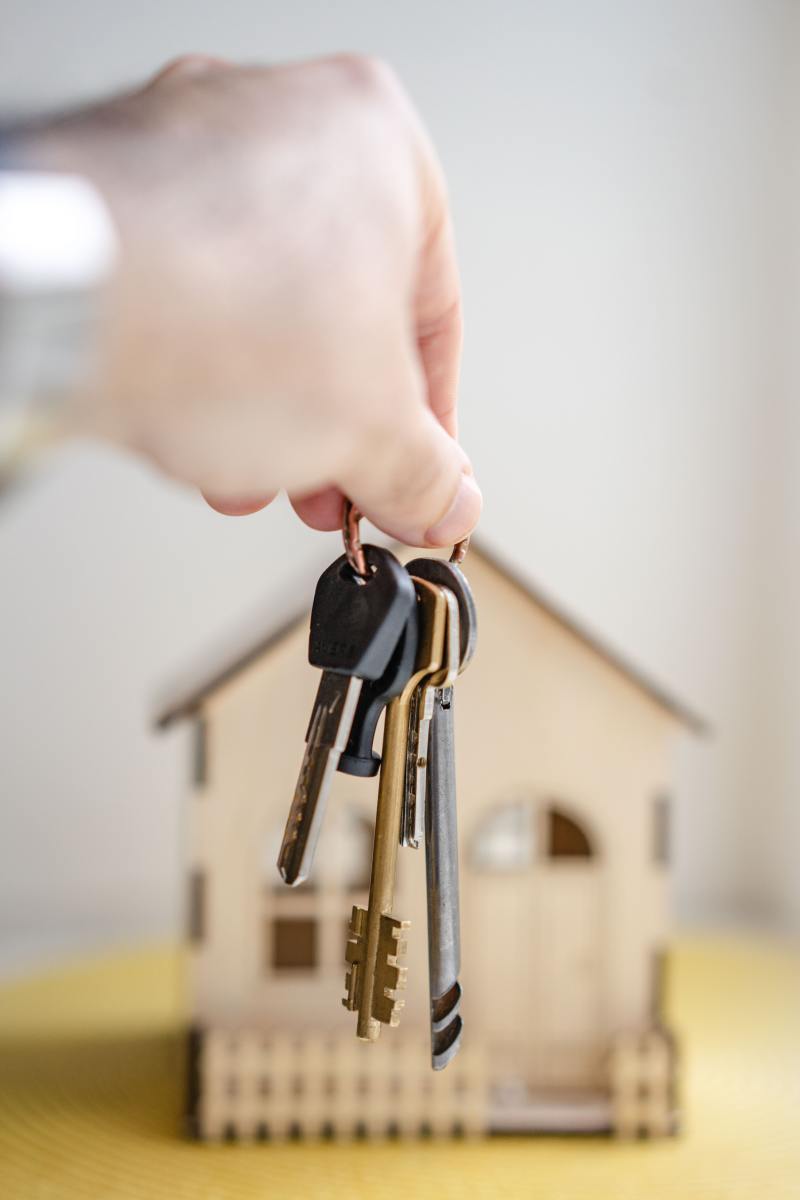What to do if you are in negative equity
You have negative equity in your property when the amount of your outstanding mortgage exceeds the market value of your home. This is usually a consequence of property prices falling (though in some cases people took out a 110% mortgage).
House prices usually fall in recessions as job losses force people to sell their homes (or default on their mortgages causing cheap homes to come on market at auctions) and potential buyers hold off making purchases because they are uncertain about their own employment prospects. The credit crunch has exacerbated things because the source of funds for lending from the money markets have dried up and lenders who have made losses try to cut back on potentially risky lending.
This page is a resource of advice on what to do if you have negative equity.

Who is affected by negative equity
The majority of home owners are unaffected by negative equity. After all, you have to live somewhere and if you weren't paying a mortgage you'd be paying rent. So the majority simply keep their heads down, continue to make their mortgage payments and try to ride out the crisis till house prices start rising again.
However there are a group of people who are keenly affected by negative equity:
1. People who wish to remortgage may find they are unable to do so. Many lenders have reduced the loan-to-value they will lend at. Typically they won't touch you unless your loan-to-value is 75% or less, though some lenders will consider people on 90%. If you took out a 90% mortgage two years ago and house prices have fallen since then, you won't be able to remortgage as your loan will be dangerously close to the value of your home or will exceed it (i.e. you have negative equity). House prices in the UK have dropped by about 18% since mid 2007.
At the moment, most lenders are steering away from negative equity mortgages. However a few are offering these mortgages to their existing customers. Here's a list of those lenders who are offering a negative equity mortgage:
- Coventry building society and this is only available to existing customers.
- The Nationwide has launched a negative equity mortgage where they will lend 125% to existing customers who want to move but are in a negative equity situation - you will be able to borrow 95% of the new property and also carry forward up to 25% of the loss incurred on the existing property due to negative equity.
- HBoS will offer up to 120% for existing customers whose current mortgage deal is about to expire and are looking to remortgage. But they are making offers on a case by case basis
2. People who need to move house. This could be because they have changed jobs requiring them to relocate or because their family is expanding and they need bigger premises.
3. People who need to take mortgage payment holidays. This is an overlooked group, but as people become unemployed, they may wish to manage their cashflow by taking a payment holiday. Unfortunately, if you are in negative equity, the request will get denied. Therefore if you are worried about your employment prospects, you need to take steps to reduce your negative equity before you lose your job.
How to check if you are in negative equity
There are financial calculators available which allow you to check whether you are in a negative equity situation. One such is the Financial Times Mortgage Calculator. The money sections of most good financial websites also have mortgage calculators.
Another way to calculate this is to get an estate agent to value your home and compare this to the amount of mortgage you have outstanding.
Both methods are approximate. The FT calculator is estimating the value of your home based on data for house price sales that have actually happened - but because they aggregate this into regions, they may over or underestimate what you could get in your town. The estate agent may be more accurate, but again, they tend to price houses based on whether they think buyers will wish to negotiate down or not..
What to do next
Armed with information about your situation, your next step depends on your situation.
Those trying to remortgage
If you intend to remortgage, you need to get your existing loan down to a level where you can get an attractive remortgage. The only way to do this is to make overpayments on your mortgage if the terms of your loan allow it. Thankfully interest rates are low, so those on tracker mortgages or standard variable mortgages will have seen their payments drop. Use the money freed up to pay down your loan. See if you can raise extra money working online. Do overtime if your employer allows it. Take in a lodger (in the UK, you can rent a room in your house for up to £4250 per annum tax free).
Even if you have equity in your house of at least 25%, it's worth making an effort to pay down your loan, as the best remortgage deals are only available to those with loan-to-value of 60% or less.
In a sense it's a race against time. We don't know how long interest rates will stay low. My guess is that rates will start to rise in late 2012 as the economy recovers and inflation rises. Therefore the extra disposable income that you have got from rate cuts may soon disappear. You are also racing against the house prices continuing to fall. In order to get your loan-to-value down you need to overpay your mortgage at a faster rate than house prices are falling.
Those needing to move house
If you are in the situation where you have to move house due to relocation, it might be worth renting your existing property out rather than trying to sell.
If you need to move house due to your family expanding, the situation is trickier. The good news is that the bigger house you may wish to buy will have also dropped in price. The bad news is that if you have negative equity in your existing property, if you sell, the balance will still need to be paid, plus you need to raise a deposit for the new house.
I was in this situation in the house price crash of the early 1990s .Our solution was to overpay our existing mortgage like mad to bring the loan down. This brought down the mortgage payments and the increased disposable income enabled us to separately save for a deposit on a new house. We were then in a position where our income covered both mortgages, and we rented out the first property and bought the second. Then when house prices rose again, we sold the original property for more than we had originally purchased it for (in other words we made a profit). But it was incredibly hard work and took a good three years of working flat out and not spending very much before we were able to buy the new house and another five years before we were able to sell the original house.
Historically, house price crashes tend to have a long duration and it's as well to plan being fully aware that housing may not recover it's 2007 prices for a good decade. Therefore don't pin all your hopes on a house price rise. Tackle negative equity now by overpaying your mortgage.








